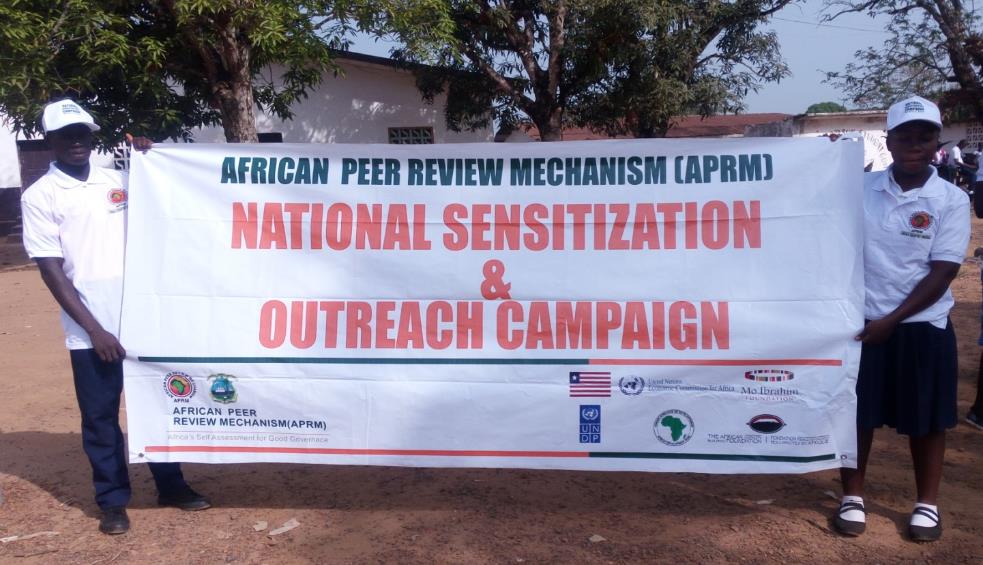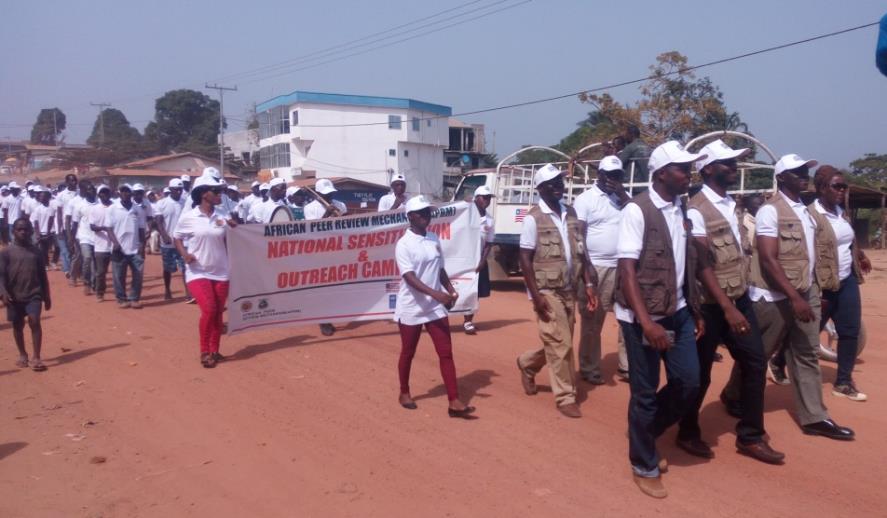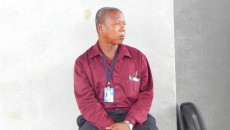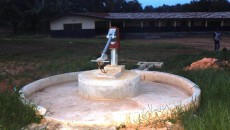GANTA, Nimba – The Government of Liberia has launched a campaign in Ganta to sensitize the public on its upcoming activities as part of the African Peer Review Mechanism.
APRM is meant to be a voluntary means for African countries to self-assess the level of good governance, including in areas such as political governance, economic management, and socio-economic development.
The sensitization activities in Ganta are the fourth in the series of the nationwide campaign that began in Montserrado on Oct. 21. Margibi and Gbarnga observed similar launches in November and December, respectively.
Boima V. Kamara, Liberia’s Minister of Finance and Development Planning, leads the APRM effort in Liberia. A formal parade from J.W. Pearson High School to the Ganta United Methodist School gymnasium was held in order to officially begin the APRM program.
“You are going to be talking about what good your government is doing,†he explained to attendees at the launch. Kamara said one of the major goals of APRM is to allow citizens to identify the aspects of their lives that are being impacted by government, whether positively or negatively.
Liberia joined APRM in Jan. 2011 and has had continual representation at the APRM Continental Secretariat in Johannesburg, South Africa, the headquarters of the movement.
Following the sensitization activities, the Technical Research Institute is expected to begin data collection in all 15 counties of Liberia in order to measure the involvement, contributions, and impact of “principal actors of democracy.†This includes civil society organizations, political parties, and the media.

Kamara (Middle), Gompa Mayor Benjamin Dokpa (immediate right of Kamara) and other APRM team members at a press conference. Photo: Arrington Ballah
In a special press conference with community radio stations and other members of the media at the Angel Hill-Top Hotel, Kamara said that a comprehensive report of the data collected would be compiled, published, and presented to members and partners of APRM.
Opponents of the APRM have criticized its past practices of placing dictators at the helm of a system meant to promote democracy and good governance. Additionally, the program has struggled to secure funding for its activities. Only 35 countries participate in the mechanism and the program had experienced a decline for several years until this year. Moreover, it is not clear that countries who have completed past evaluations have implemented the lessons learned.
Featured photo by Arrington Ballah




